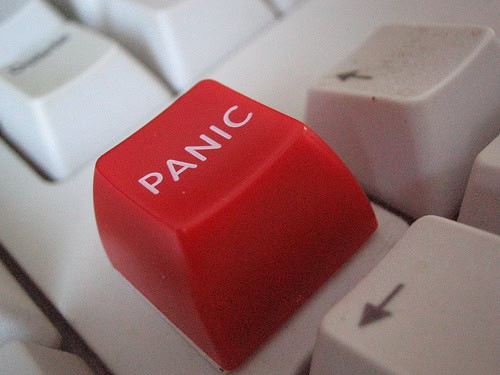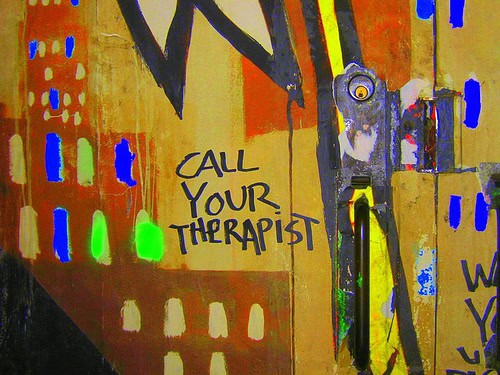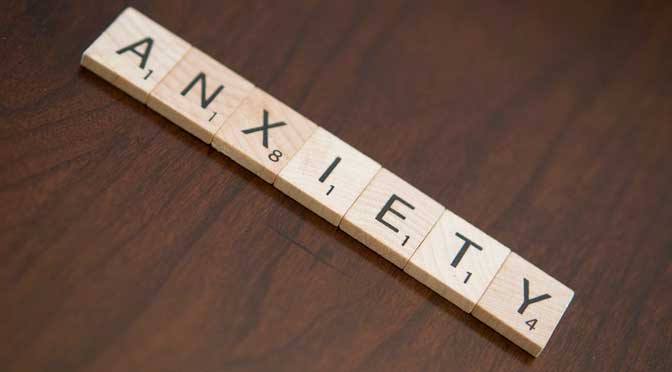Anxiety Can Be a Silent Illness…Let’s Deal With It!
Everyone has anxiety. It is a normal reaction to the demanding aspects of our lives and there is plenty of it to go around. Whether it’s paying bills, family arguments or something as extreme as terrorism, a feeling of anxiety helps us to prioritize and prepare for the things we have to face.
According to Ken Eisold, PhD, “Anxiety is indispensable in detecting danger.”
Imagine you are preparing to speak to a large audience for the first time. While you may not be in immediate danger you might start to ask yourself, how will you be perceived? What should you wear? Is what you are speaking about important enough? Your mind races and your pulse might even quicken. You are feeling some level of anxiety.

Some anxiety helps you to identify the importance of this single event in your life. Eventually you will choose a wardrobe and you will become confident in the subject of your speech. Anxiety will lessen as you are able to recognize and deal with each issue. You are now able to go on and deliver an excellent speech. Reacting to your anxiety has served you well.
On the other hand, what if this anxiety and reaction got out of control causing you an anxiety disorder? Anxiety disorders can overwhelm your mind and cause dysfunction in your life. Often sufferers feel uneasy in daily situations that seem ordinary to others. They may feel tension or fear in situations where most other people would not.
Millions of Americans are affected with anxiety disorders. They can affect all genders and races. According to The National Institute of Mental Health, women are 60% more likely to experience a disorder over their lifetime compared to men.
Types of Anxiety Disorders
There are a number of disorders each with its own distinct profile and treatment. To receive help, a person may be referred to a psychologist or another mental health professional. A psychologist uses assessment tools and interview techniques to evaluate a person for an anxiety disorder. Here are some of the disorders:

Generalized Anxiety Disorder
Those who suffer from Generalized Anxiety Disorder or GAD are the chronic worriers. They may be shouldered with the constant concern or fear that something bad is going to happen. They feel anxious all the time and are distracted in their everyday life activities. GAD will often show physical symptoms as well. Many experience sleeplessness, restlessness, stomachaches and fatigue.
Panic Attacks
A Panic Attack is a sudden, unexpected fear or even terror. People may feel they are having a heart attack or cannot breathe. Most episodes are brief though they can lead to a panic disorder (repeated attack occurrences) and the worry of more over time. Panic attacks are not in line with a current situation and may in fact be unrelated. Other symptoms can include dizziness, fatigue, numbness in the extremities, a feeling of no control or impending catastrophe.
Obsessive-Compulsive Disorder
Obsessive-Compulsive Disorder (OCD) is unwanted thoughts and/or behaviors that cannot be controlled. Oftentimes a person with OCD knows the behavior or thoughts are irrational but is still unable to stop them.
Persistent thoughts of leaving the front door unlocked or the water running may enter into the mind causing a repetitive reaction. A common behavior associated with OCD is repeatedly washing your hands.
OCD can interfere with all aspects of one’s life if left untreated.
Specific Phobia
Phobias are exaggerated fears of specific things that would not normally be threatening to a person. Even though a person may know the fear is irrational they are powerless to stop it. People with a specific phobia will go to extraordinary lengths to avoid a particular situation or object. Common phobias include a fear of heights, dogs or being alone in the dark.
Social Anxiety Disorder
Social Anxiety Disorders or social phobias are debilitating fears of social situations. A person may be fearful of public embarrassment or being seen in a negative light by others. Social phobias can be triggered by actual or perceived criticisms and interfere with everyday situations like going to work, school or meeting with friends.
Some may experience social phobia in certain social settings while others may fear almost any social situation. For example, a person may be afraid to use public transportation while another will fear leaving their home altogether. Many who suffer from this disorder realize that the fear is unwarranted but are unable to control it.
Post-Traumatic Stress Disorder
Post-Traumatic Stress Disorder (PTSD) is an extreme mental reaction in the aftermath of a life-threatening or traumatic experience. A person with PTSD may experience nightmares or flashbacks and feel they are reliving the crisis situation.
Sufferers may become withdrawn or experience extreme mental and physical reactions to anything that reminds them of the event. People with PTSD will avoid places, situations or other things that remind them of the event.
PTSD is treatable and treatment methods can help to get a persons life back in order.
Treatment for Anxiety Disorders
According to The Anxiety and Depression Association of America,
“Anxiety disorders are the most common psychiatric illnesses affecting children and adults. It is estimated that 40 million American adults suffer from anxiety disorders”.
Many people, however, do not seek treatment even though there are proven methods that make these disorders highly treatable. There has been a great deal of progress made within the past 20 years in the treatment of this mental illness.
- Psychotherapy is a method of talking through and understanding strategies to deal with an anxiety disorder. It is a treatment method that utilizes personal interaction between a person and a mental health professional or therapist. There are many variations of psychotherapy, however most are handled in one-on-one sessions with a therapist. Families, couples and groups can also interact and benefit from psychotherapy sessions.
- One specific type of psychotherapy is cognitive-behavioral therapy. With this method a person learns to recognize thought patterns that lead to their anxieties. Once identified the person then learns to change the pattern that leads to troublesome feelings.
While each treatment is specific to the individual and the type of disorder, a professional care provider may use medications, therapy or alternative treatments. Anxiety disorders left untreated will worsen over time.
- Medications are sometime prescribed to help reduce anxiety disorder symptoms. They include anti-depressants and other anxiety-reducers. Medication is often a short-term solution however. Benefits and drawbacks should be considered carefully between you and your provider before beginning treatment.
- Simple but effective changes in diet and lifestyle can be essential in dealing with an anxiety disorder. Often it will be a component of an overall treatment plan.
- Exercise stimulates the body and produces chemicals in the brain that reduces depression and anxiety. The brain also needs to be fed nutrients to function at it’s best. An unhealthy diet may not provide the necessary nutrients and could contribute to feelings of depression and anxiety.
The Good News
Some of the most important things in life cause us anxiety. Our families, friends or jobs are constant reminders of that. We have all had our moments. However, it is critical that we recognize when these feelings are getting out of control, overwhelming and causing us to miss out on what life has to offer. Anxiety disorders can rob people of the things that matter.
The good news is that there are proven treatments and methods to help. These help us to recognize and face issues that are causing difficult and sometimes impossible feelings to deal with. At times we feel powerless to control our anxiety, however, we are empowered with the knowledge that we are not alone. There are therapists to help identify anxiety…now let’s deal with it!
This information is provided to supplement the care provided by your physician. It is neither intended nor implied to be a substitute for professional medical advice. CALL YOUR HEALTHCARE PROVIDER IMMEDIATELY IF YOU THINK YOU MAY HAVE A MEDICAL EMERGENCY. Always seek the advice of your physician or other qualified health provider prior to starting any new treatment or with any questions you may have regarding a medical condition.



